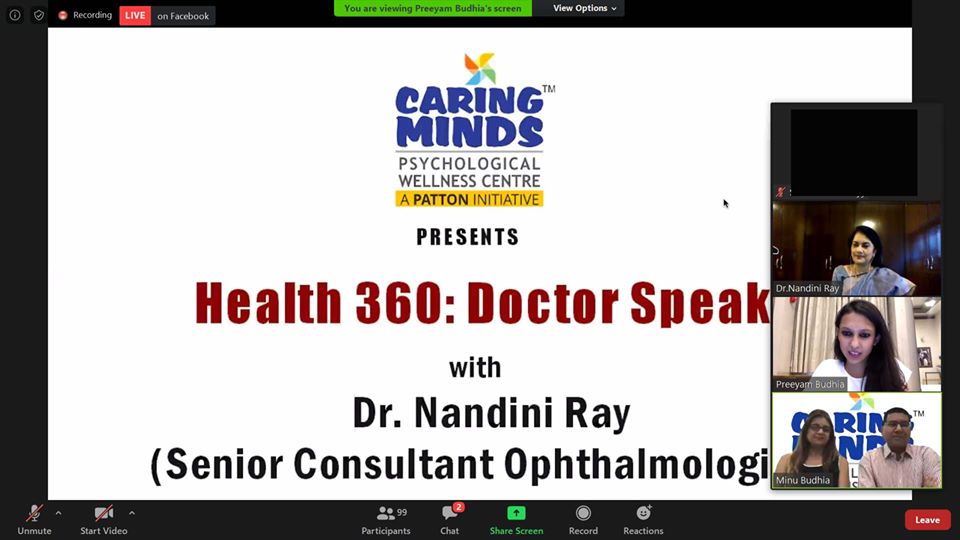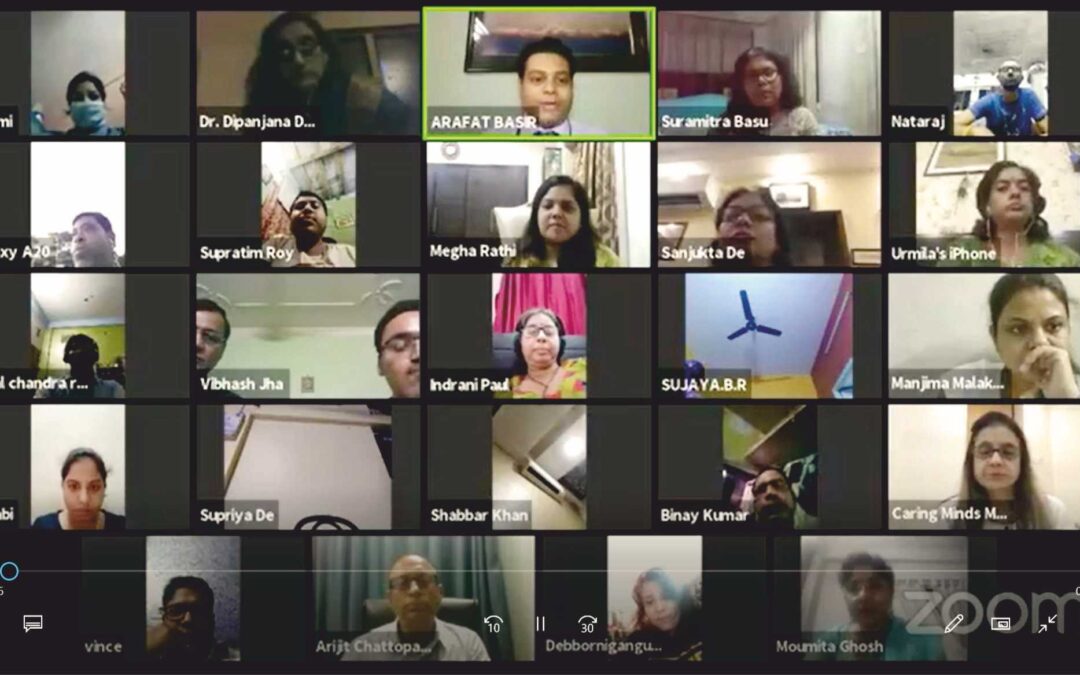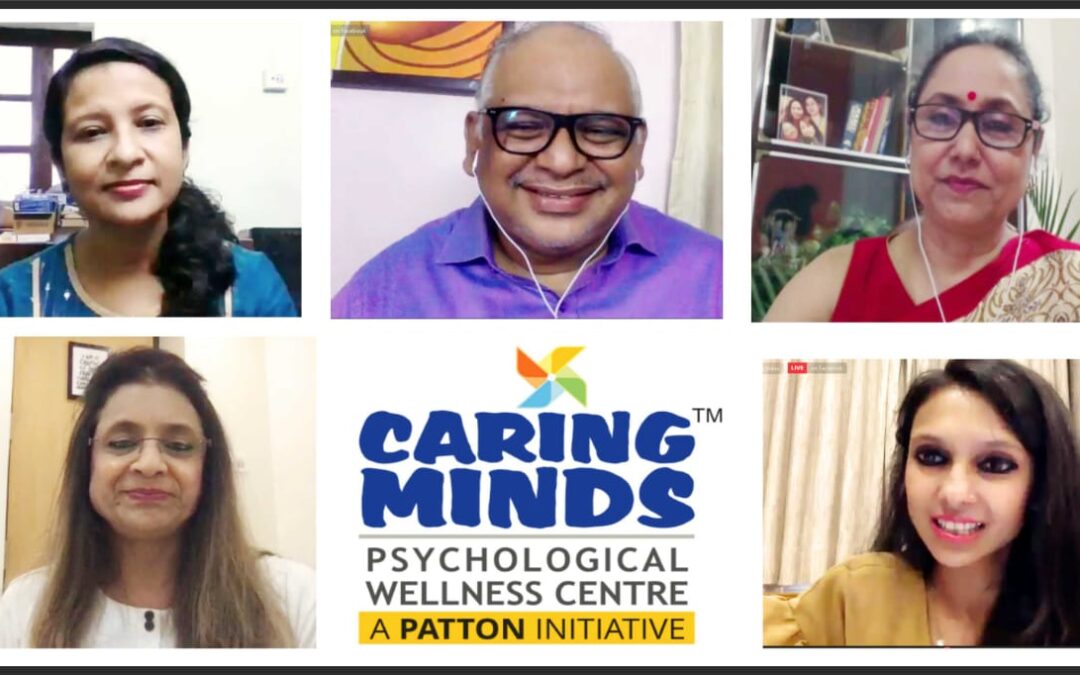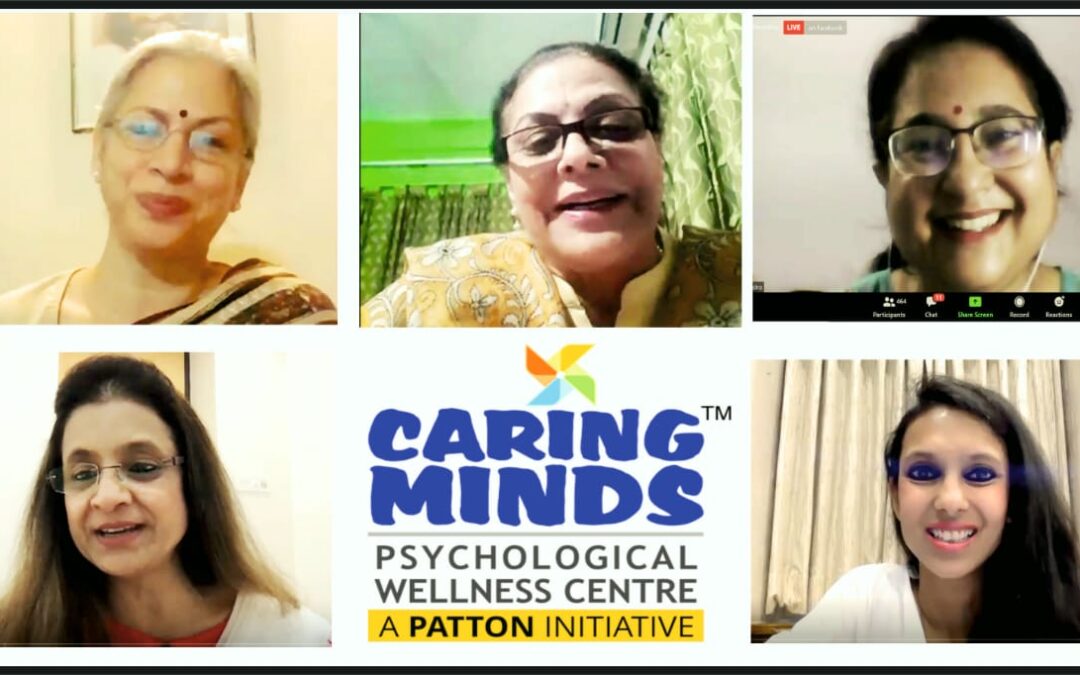Senior Consultant Ophthalmologist Dr. Nandini Ray live in conversation with Minu Budhia (Founder – Caring Minds) and Preeyam Budhia (Head, New Initiatives – Caring Minds).
Dr. Nandini Ray





Minu Budhia (Founder – Caring Minds) and Preeyam Budhia (Head, New Initiatives – Caring Minds) hosted ‘It’s Okay Not To Be Okay – a talk on mental health. The speakers – psychiatrist Dr. Rajarshi Neogi & psychologist Megha Rathi – spoke on understanding depression, identifying red flags, and learning coping techniques.


Dr. Munmun Nath (Principal Senior School – Calcutta International School) & John Andrew Bagul (Principal – South City International School) in conversation with Minu Budhia (Founder – Caring Minds) & Dr. Prathama Chaudhuri (Consultant Neuropsychiatrist) about Anxiety & Depression in Young Adults. Session moderator: Preeyam Budhia (Head, New Initiatives – Caring Minds).

Suvina Shunglu (Principal – Sri Sri Academy) & Meena Kak (Director – Lakshmipat Singhania Academy) in conversation with Minu Budhia (Founder – Caring Minds) & Atreyee Chandra (Clinical Psychologist) about Anxiety & Depression in Young Adults. Session moderator: Preeyam Budhia (Head, New Initiatives – Caring Minds).

Diet counselling, also known as nutrition counselling, is a process in which a qualified healthcare professional, such as a registered dietitian or nutritionist, provides guidance and support to individuals regarding their dietary habits and nutrition-related goals. The aim of diet counselling is to help individuals make informed choices about their food intake and develop healthier eating patterns to achieve and maintain optimal health. It empowers individuals to take charge of their own health by making informed choices about their diet. It provides the knowledge, skills, and support necessary for individuals to adopt healthier eating habits, improve their overall well-being, and prevent or manage various health conditions.
Key Aspects of Diet Counselling
Goals

A relatively new approach, Acceptance and Commitment therapy (ACT) uses behavioural techniques in combination with an emphasis on clients’ use of language to alleviate client distress. Here, the focus is on accepting a feeling, event, or situation rather than avoiding it. ACT therapists believe many emotional problems develop as clients use ineffective methods, such as avoidance, to control their emotions. Rather than having clients focus on avoiding a feeling, they help clients accept a feeling, event, or situation. Clients can then look at their thoughts and feelings rather than look from them. They help clients clarify values and commit to behaviours that fit with these values. This treatment is useful in Obsessive Compulsive Disorder and anxiety-related disorders.

Motivational Enhancement Therapy (MET) is based on principles of motivational psychology and is designed to produce rapid, internally motivated change. The MET approach begins with the assumption that the responsibility and capability for change lie within the client. The therapist’s task is to create a set of conditions that will enhance the client’s own motivation for and commitment to change. Rather than relying upon therapy sessions as the primary locus of change, the therapist seeks to mobilize the client’s inner resources as well as those inherent in the client’s natural helping relationships. MET consists of four carefully planned and individualized treatment sessions. The first two sessions focus on structured feedback from the initial assessment, future plans, and motivation for change. The final two sessions at the midpoint and end of treatment provide opportunities for the therapist to reinforce progress, encourage reassessment, and provide an objective perspective on the process of change. Due to the its brief nature, it may be particularly useful in situations where contact with clients is limited to few or infrequent. Treatment outcome research strongly supports MET strategies as effective in producing change in substance abuse clients.